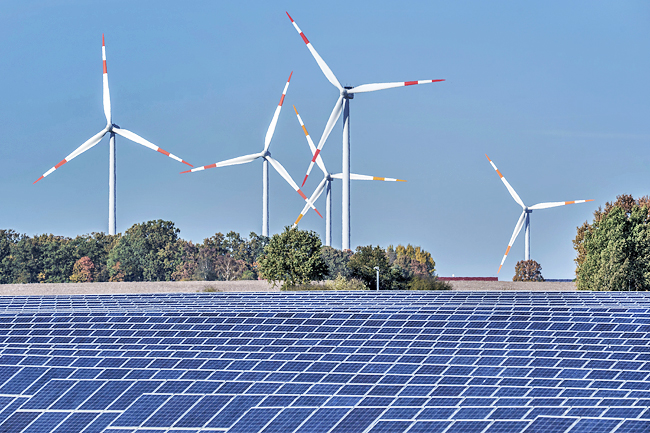In Short : The Investing in America Agenda has a significant impact on West Virginia’s energy landscape. With a focus on clean energy, the state is poised for a transformative shift. Investments in renewable energy projects, like solar and wind farms, create job opportunities and reduce carbon emissions, aligning with the state’s economic and environmental goals. The agenda also promotes energy efficiency, ensuring a sustainable and greener future for West Virginia.
In Detail : On Monday, October 16th, Secretary Granholm will travel to Morgantown to commemorate the Biden-Harris Administration’s recent Regional Clean Hydrogen Hubs announcement, an unprecedented investment in American manufacturing that will create good-paying jobs and strengthen the nation’s energy security while combating the climate crisis.
The Secretary will join Senator Manchin at the National Energy Technology Laboratory to highlight how the Appalachian Regional Clean Hydrogen Hub will deliver new economic opportunities to workers in communities that have historically relied on the coal industry and create 21,000 jobs—including more than 18,000 construction and 3,000 permanent jobs.
Strengthening West Virginia’s Economy
Energy Jobs
In 2022, there were already 85,381 West Virginia workers employed in the energy sector.
The Inflation Reduction Act is expanding these opportunities, bringing an estimated $240 million of investment in large-scale clean power generation and storage to West Virginia between now and 2030.
Small Businesses
West Virginia is home to 111,614 small businesses, representing 98.8% of all businesses in the state, and the Inflation Reduction Act will help them save money. Commercial building owners can receive a tax credit up to $5 per square foot to support energy efficiency improvements that deliver lower utility bills. Other programs that will benefit small businesses include tax credits covering 30% of the costs of installing low-cost solar power and of purchasing clean trucks and vans for commercial fleets.
Clean Energy Investment
Currently, West Virginia has 900 MW of solar, wind, and storage capacity. There is an additional 196 MW of solar capacity in the works, enough to power the equivalent of over 25,000 additional homes.
The Inflation Reduction Act tax credits that encourage investment in wind and solar will help reduce energy costs, as the costs of solar and wind power are projected to drop by 26% and 34%, respectively, over the next 30 years in West Virginia.
Since the start of the Biden Administration, the U.S. Department of Energy (DOE) has tracked more than $150 billion in new battery supply chain investment announcements, including $782 million in West Virginia.
Investing In West Virginia
Thanks to funding from President Biden’s Investing in America Agenda, the U.S. Department of Energy has made available more than $180 million in the past year to West Virginia’s state and local governments to invest in energy efficiency and grid resilience. This includes funding to help low-income households access more efficiency appliances, and over $8 million to help strengthen grid resilience.
West Virginia University has also received an $8 million grant for critical minerals research.
Through the Inflation Reduction Act, DOE provided the National Energy Technology Laboratory research site in Morgantown, West Virginia with $40 million. The funds will be used for: research to monitor the movement of carbon dioxide stored underground for carbon capture; modernization of lab facilities; and formulation of stronger metal alloys for energy sources, such as for hydrogen.
Saving West Virginians Money on Home Energy Bills
The U.S. Department of Energy’s Weatherization Assistance Program and State Energy Program have invested more than $32 million in West Virginia since 2015, leading to 365 jobs and over 4,000 homes with reduced energy costs and improved health and safety.
Upgrading appliances and improving home energy efficiency could save a total of 1,885 GWh of energy in West Virginia, enough to power the equivalent of 78,000 West Virginia homes.
West Virginia will receive over $88 million to implement a Home Energy Rebate program in the state. Low-income households in West Virginia could save an average of 53% on their home energy bills when they upgrade their appliances and improve energy efficiency through this program.
The Inflation Reduction Act also includes grants to help state and local governments adopt the latest building energy codes, which would save the average new homeowner in West Virginia 27.4% on their utility bills. That amounts to $841 per year.

